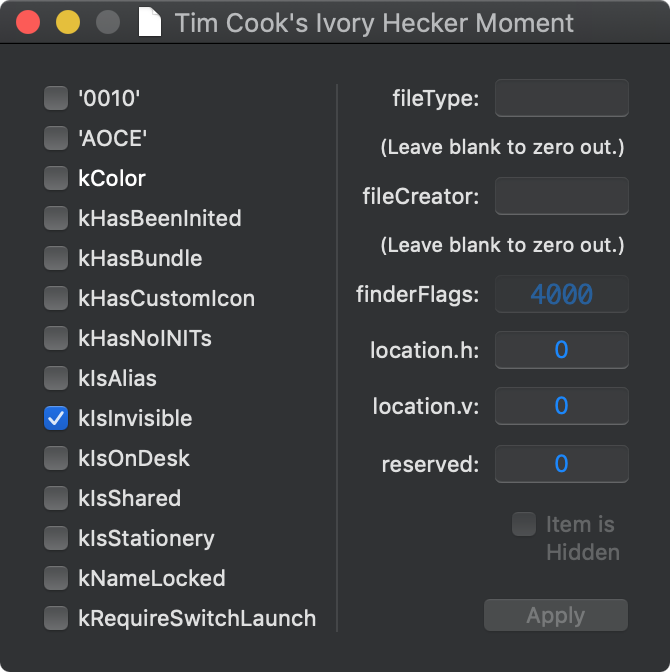Home » Learning Curve » Red Hat Diaries
Tim Cook's Ivory Hecker Moment'I hope they don't get rid of curl.'
UMMC HOUSTON (Rixstep) — Most people by now have heard of Ivory Hecker and are familiar with her story.
Ivory was a reporter at a Fox station in Houston who was sent out to interview Dr Joseph Varon of the United Memorial Medical Center. Varon had been in the news because of his miraculous success in treating Covid patients. Ivory met with him and the actual results of that report can be found at the link below.
https://rumble.com/vj1sm5-ivory-hecker-media-conceals-and-censors-potential-covid-treatments.html
Even though Ivory was sent to specifically interview Varon, she was chastised for it, and her segment was not shown.
If you're going to be thick-headed about it, you'll keep asking yourself 'why oh why' over and over again. For the rest of us, the explanation is obvious.

Ivory went to Project Veritas - she even announced this on another scheduled segment for Fox Houston, for which she was condemned by a new Nurse Ratched at RT of all unexpected places. And at PV she told the whole story.
Reporting on wonderful people who saved lives was a good thing, but mention IVERMECTIN - in fact, mention anything that interfered with Big Pharma's plans to vaccinate the whole solar system with their experimental potions - that's a no-no. And the word came down, not from management at Fox Houston but from Fox headquarters. The real bosses.
There are some things you can't say. It doesn't matter if it's the truth. It doesn't matter if lives are in the balance. You just can't say it.
Tim Cook, over in Fantasy Land at Apple INC, is having such a moment. Somewhat like what Steve Jobs went through when he was trying to convice the big record companies to back his iTunes plan. Those companies had just assumed that a subscription model had to be used. Steve Jobs said no. He said it had to be a per-item purchase model. He brought in PhDs and all the world's experts to convince Jimmy Iovine and the others that his way of doing it was the only way that would work.
Napster 2.0
But the record companies didn't want to risk another Napster. What was most important for them was to thwart sharing. They'd sort of solved this in the acetate era by getting tape manufacturers to tack on a 'tax' on the price of empty cassettes to compensate for the wanton sharing that would ensue. But now?
On Apple's platforms Steve Jobs solved it like this.

As Apple still had a schizoid file manager and overall file system philosophy, some of the file attributes from the 'beige days' remained. As Apple's Finder was baked into the Dock and could not be removed, and as most Apple users are pretty clueless anyway, you just use the cobwebbed flag 'kIsInvisible' to make sure something isn't visible.
Of course that 'thing', whatever it is, will otherwise be visible, but Apple users aren't going to be that smart, are they?
Of course not.
iPod_Control
So Apple created a directory on their iPod called 'iPod_Control', and that's where they hid all the songs you downloaded from iTunes. Then, if you wanted to share tracks with a friend, and you connected your friend to your iPod, you'd come up with nothing. Because the directory 'iPod_Control' is marked with the 'kIsInvisible' flag, and nothing marked with that flag is visible in Apple's Finder, and almost no Apple users know how to find anything except with the Finder.
Problem solved.
But the iPod conundrum was nothing like the App Store conundrum that followed. Just imagine if we could control all independent third-party software on our platform, said Scott Forstall's replacement Timothy Cook. Yes indeed, said another. But is that really something we want, is it even possible, asked a board member previously with IBM.
But of course it is, Cook snapped back as he made a mental note of the intruder.
We'll do like this, Cook told them. I've been talking to marketing.
First we're going to convince them that our platform is very very unsafe.
But how can you do that when you've just spent years on an advert campaign to convince them they are safe, protested IBM.
We'll do it, don't worry, Cook snapped back. We convinced them, once upon a time, that PPC was superior to Intel -
Because it is, interrupted IBM.
Anyway, continued Cook, we convinced them. And then, because we want dongles on our platforms and are never going to sell that many units, IBM refused to invest in making a cool next-generation CPU for us, so we had to switch to shitty Intel, and we convinced everyone it was a good move and Intel was better after all!
IBM was silent.
So we'll do it again, said Cook. We'll start the myth that Macs are insecure. We'll introduce something we'll call code-signing. We're going to use our super-expensive ROOT CERTIFICATE to lock everyone's application bundles -
What's the catch, asked IBM.
The catch, Cook said emphatically, the CATCH... is that they'll have to go through us. We'll control the entire stream! All products, all software titles, no matter who makes them, will have to pass through us!
There was a murmur around the table.
How much will this cost us, asked someone.
But don't you see, said another, that's the beauty! We'll charge for this 'service'!
PRECISELY, smiled Timothy Cook.
But that's only about 10% of the price, said someone. Software sites take about 10%. How much money is that?
We're going to take THIRTY PERCENT, said Cook with a grin.
Thirty percent, they moaned around the table. IBM held his face in his hands.
Yes thirty percent, said Cook. But we'll never say that. What we will say is that vendors get to keep seventy percent of their own money! And we'll make it sound like we're being generous.
And we'll charge them an application fee, said a girl from marketing.
Make it an annual subscription fee, said another girl from marketing. And to have their software listed at iTunes they have to keep paying this fee every year.
How much money is that, Cook asked, turning to the marketing girls.
Well, said the second of them, we have a few million software developers already, so multiply that by ten dollars! That's a lot of millions for nothing at all!
For a few meg on a server, said Cook.
A hundred, said marketing girl number one.
Huh, asked Cook.
A hundred. Dollars. One hundred dollars annual subscription fee to be in our iTunes software distribution system.
One hundred? For what? That's never going to work, said IBM.
Oh but it will too work, said marketing number one. And yes it's outrageous, but that's the point. If we charged just ten dollars, they'd be bitching until the cows come home. But if we charge one hundred...
Or ninety-nine, suggested marketing number one.
Yes, ninety-nine, repeated marketing number two. Then they think they're getting a big discount. Or something. The dumbfucks.
I got it already, said marketing number two. 99 it is. Then we can inspect all the software and choose what will run on our platforms.
You'll have to establish criteria, said IBM who was suddenly back in the game.
It must be very detailed, Cook offered, like the terms of use for a social media site. Very detailed, yet of course vague enough so we can bend things when we want to.
We can't have just anything running on our devices, someone protested.
Exactly, someone else chimed in.
We don't have any malware on our platforms, said marketing girl one. We just spent years proving that.
Well that's the pretext, said Cook who was ready to take charge again. Most importantly, we'll be able to control the look and feel of all software on our platforms. In a nutshell, if we don't like it, no one will ever see it.
Sorry, but that reduces down to slave labour, said IBM who was originally from England and kept putting the extraneous letter 'u' in everything.
How is that slave labor, asked Cook, who spelled things correctly.
Well think about it, demanded IBM. They're essentially working for us. They get no holidays, no dental, no insurance, and we only pay them if we want to, and then we only pay them two-thirds of what they should be getting at a bare minimum.
We can hire on anyone who's really good, said a voice from the back.
Good isn't as important as being able to get along, said another voice from the back.
So it's settled then, said Cook who was in a hurry to get to his physical therapist. Let's round up.
Santa Anna
'Sometimes a developer needs to send a Mac app to a user for testing', writes Jeff Johnson. 'In that case it's a pain to upload the app to App Store Connect first and wait for Apple to notarise the app before you distribute it. If you normally distribute your app exclusively in the Mac App Store, the app might not have enabled the hardened runtime, and you won't be able to notarise the app for distribution outside the Mac App Store.'
Oh heavens.
'The easiest solution is to download the file in a way that doesn't cause it to be quarantined', writes Mike Tsai.
'I hope they don't get rid of curl', writes Old Unix Geek.

You've obviously heard of us, otherwise you wouldn't be here.
We're known for telling the truth even if it's not in our interest.
We're now telling you to beware Apple's walled garden. Don't get locked in.
What you've seen so far may be only the beginning of something far far worse.
Download our Test Drive and at least check out our free Keymaster Solo.
That's the first step to regaining your freedom. See here.
|